Women's most frequently asked questions about pregnancy tests: All the answers and what to look out for
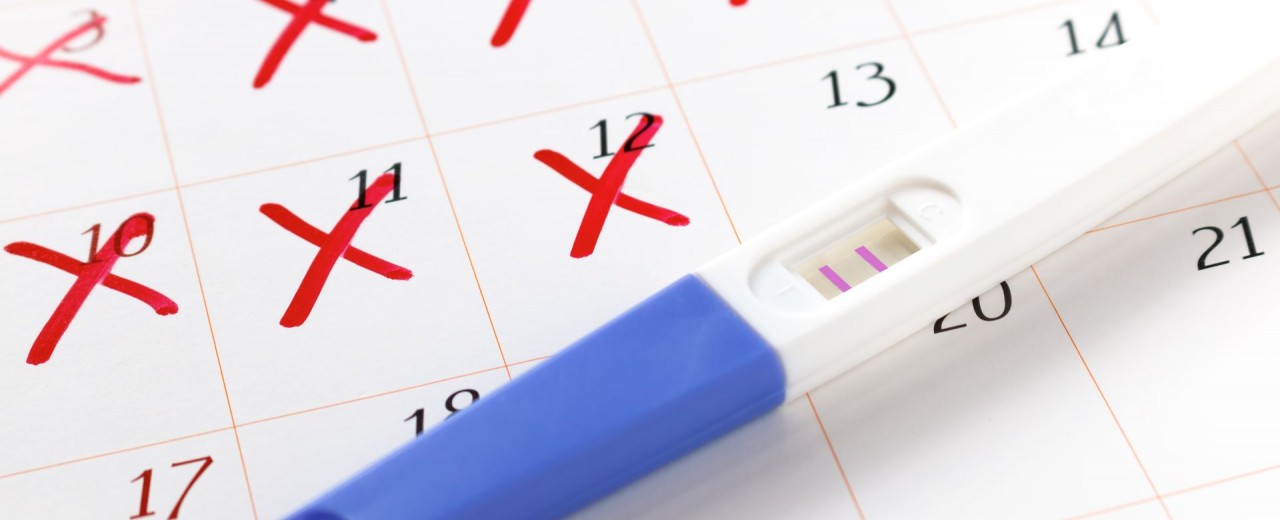
When a woman is in the sensitive phase of her life where she thinks she's pregnant or is trying to conceive, it's natural to have dozens of questions and want to know everything about it.
HomeTest, with years of experience and expertise in pregnancy tests, has compiled the most common and reasonable questions women have with detailed answers, so you know what to expect and what your next steps should be.
When is the right time to take a pregnancy test?
Pregnancy tests detect human chorionic gonadotropin (hCG) which begins to be secreted in the body a few days after implantation of the fertilized egg, that is 10-15 days after ovulation.
Therefore, the best time to take a pregnancy test is on the first day of your missed period, so you have a 100% reliable result. However, there is a small chance that the hormone can be detected even 4-5 days before your expected period, but with low accuracy and reliability.
Read more in the article: "When should I take a pregnancy test".
Which pregnancy test should I choose?
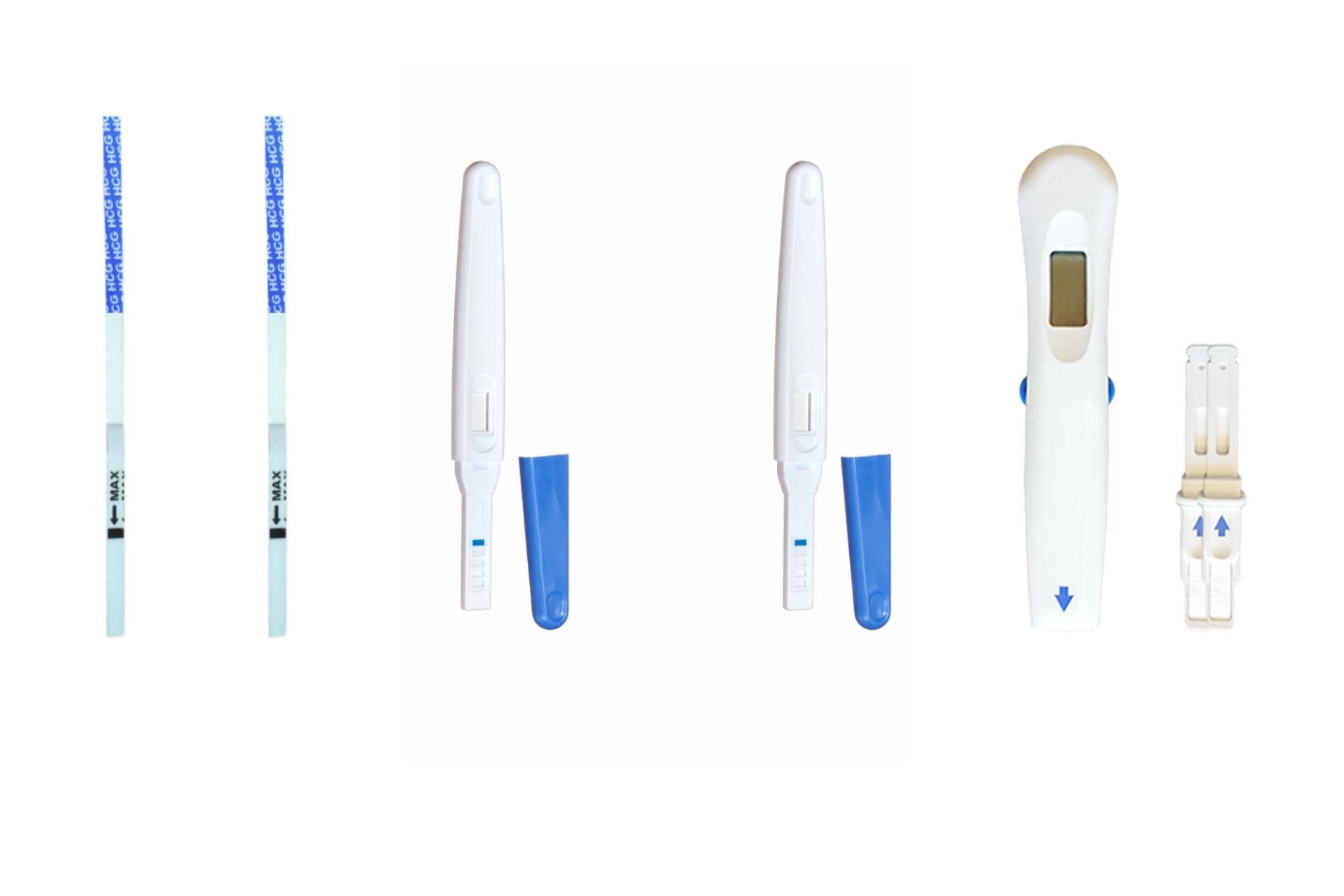
There are three basic types of pregnancy tests: digital tests, strip tests and midstream tests. All detect the same hCG hormone and are equally reliable. Digital tests offer an easy-to-read result (YES/NO), while strips and midstream tests show result lines, so the woman interprets it herself and can see the second line darken day by day.
You can learn more about which pregnancy test to choose, but the final choice depends on your needs and how you want to use the test.
How do pregnancy tests work and how do I use them correctly?
Pregnancy tests detect beta-hCG in urine. After implantation, the body begins to secrete hCG and the hormone is excreted in urine. When the hormone is at detectable levels (usually around the first day of a missed period), the test is positive.
Tests are used in two ways: dipping the strip in a container with urine or placing it in the urine stream for digital and midstream tests. Collection in a container, however, is considered easier and more accurate.
For the result to be reliable, it is recommended that the test be done with first morning urine, where hCG concentration is highest. On analog tests, two lines appear (control line and result line), while on digital tests a "YES/NO" indication appears.
Learn more about how pregnancy tests work.
Can a pregnancy test show results from the first day of conception?

The anxiety of a woman trying to get pregnant is enormous, but it is not possible to detect pregnancy from the first day of conception or from the first day of implantation. Fertilization and implantation are two distinct stages that are completed in 10-14 days.
Implantation occurs about one week after fertilization and only then does hCG secretion begin. For hormone levels to reach the threshold of 25 mIU/ml, when it can be detected by a pregnancy test, another 2-3 days are required after implantation. Therefore, even the most sensitive early detection tests cannot detect pregnancy from the first day of conception and Hometest does not recommend using them earlier than six days before the expected period.
For details, see the article: "Can I get a pregnancy test from the first day of conception?".
I have a missed period, but the test is negative. What does this mean?
A missed period is in itself the most basic symptom of pregnancy. After all, a reliable pregnancy test, like Hometest's, shows with almost 100% accuracy a possible pregnancy from the first day of a missed period.
If the test, however, remains negative, there are four possible causes:
- Incorrect cycle calculation: Ovulation may have occurred later, so there is no delay yet.
- Incorrect use of the test: Common mistakes made are using the test in the urine stream which is more difficult, large fluid consumption that dilutes hCG, or a sample with afternoon urine which is more diluted.
- The pregnancy is not progressing normally: In ectopic pregnancy, miscarriage or biochemical pregnancy, the hormone may decrease instead of increase, so the test may remain negative.
- The delay is due to other reasons and not pregnancy: Such as thyroid disorders, polycystic ovary syndrome, intense stress, sudden weight loss, medication use or menopause.
Find all the answers on this topic in the article: "I am 7 days late and get a negative pregnancy test! What's happening?".
What does a faint line or evaporation line on a pregnancy test mean?
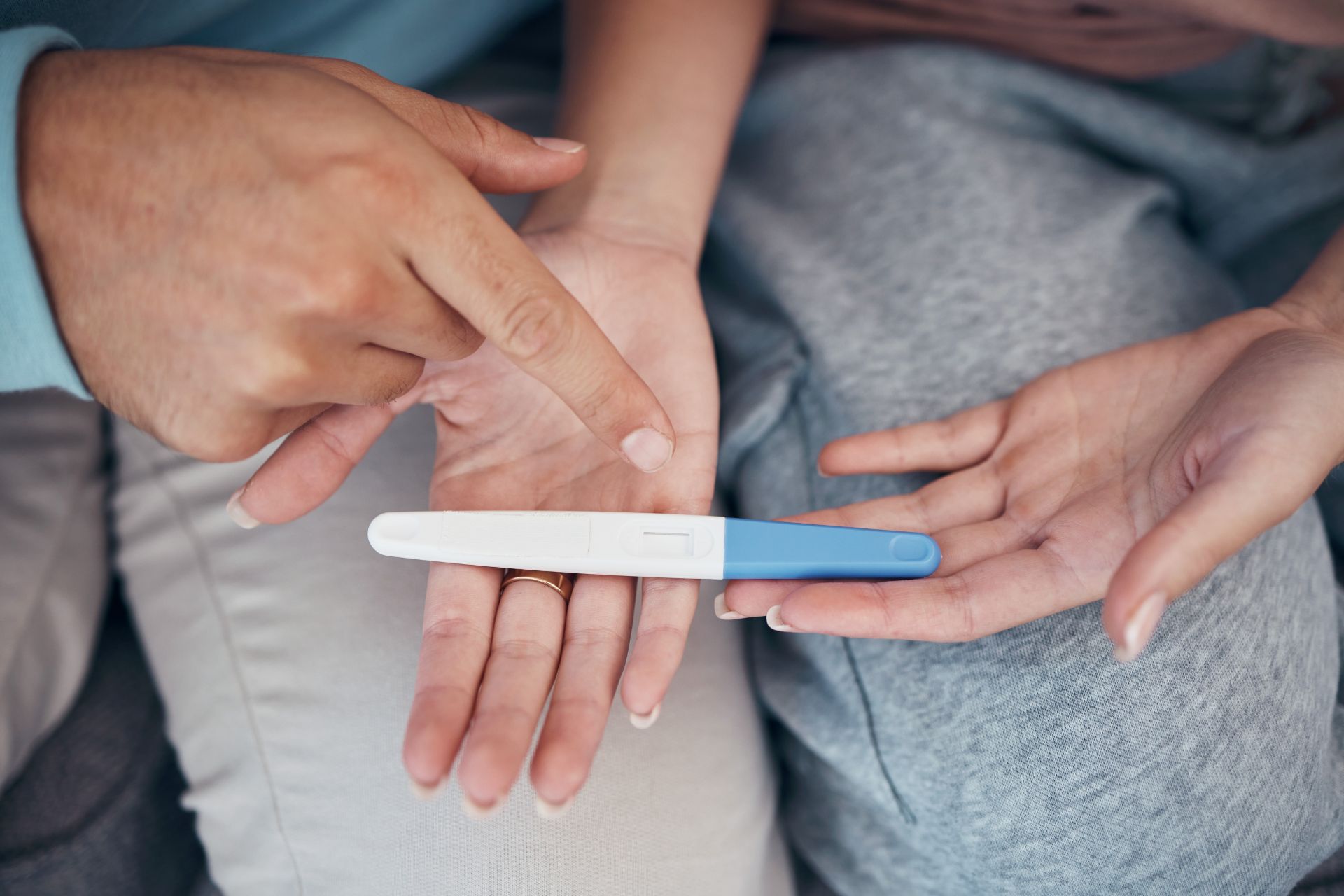
A very faint line can cause confusion for a woman who doesn't know if the test is positive or not. On analog tests, when hCG levels approach 15 units, a very faint result line appears, which becomes more intense as the hormone increases and reaches 25 units. If the line is visible within the indicated time (5 minutes), it is considered a positive result, even if it is very faint.
On the other hand, if a faint, colorless line appears after the reading time, it is an evaporation line. However, the evaporation line is a rare phenomenon caused when the test dries due to the reaction with urine.
Read more about the evaporation line on pregnancy tests and how to interpret pregnancy tests correctly.
Are DIY/homemade pregnancy tests with materials like bleach, salt or baking soda reliable?
These tests are based on the assumption that beta-hCG in urine causes different chemical reactions (e.g. baking soda fizzes). However, they have no scientific basis, as chemical reactions can occur regardless of pregnancy and household materials are not sensitive enough to distinguish hCG.
Besides, pregnancy tests, which you can order online from Hometest, are very affordable and 100% reliable, so there's no reason to deal with dubious practices.
See the 6 alternative ways for pregnancy testing and learn why they are not reliable.
How soon after a positive ovulation test can I take a pregnancy test?
Pregnancy tests, especially strip tests and midstream tests, can show results 9-10 days after fertilization, that is about 3-4 days before the expected period. Digital tests are intended for the day of the missed period or one day before.
Read more in the article: "When should I take a pregnancy test".
What time of day is suitable for a pregnancy test?
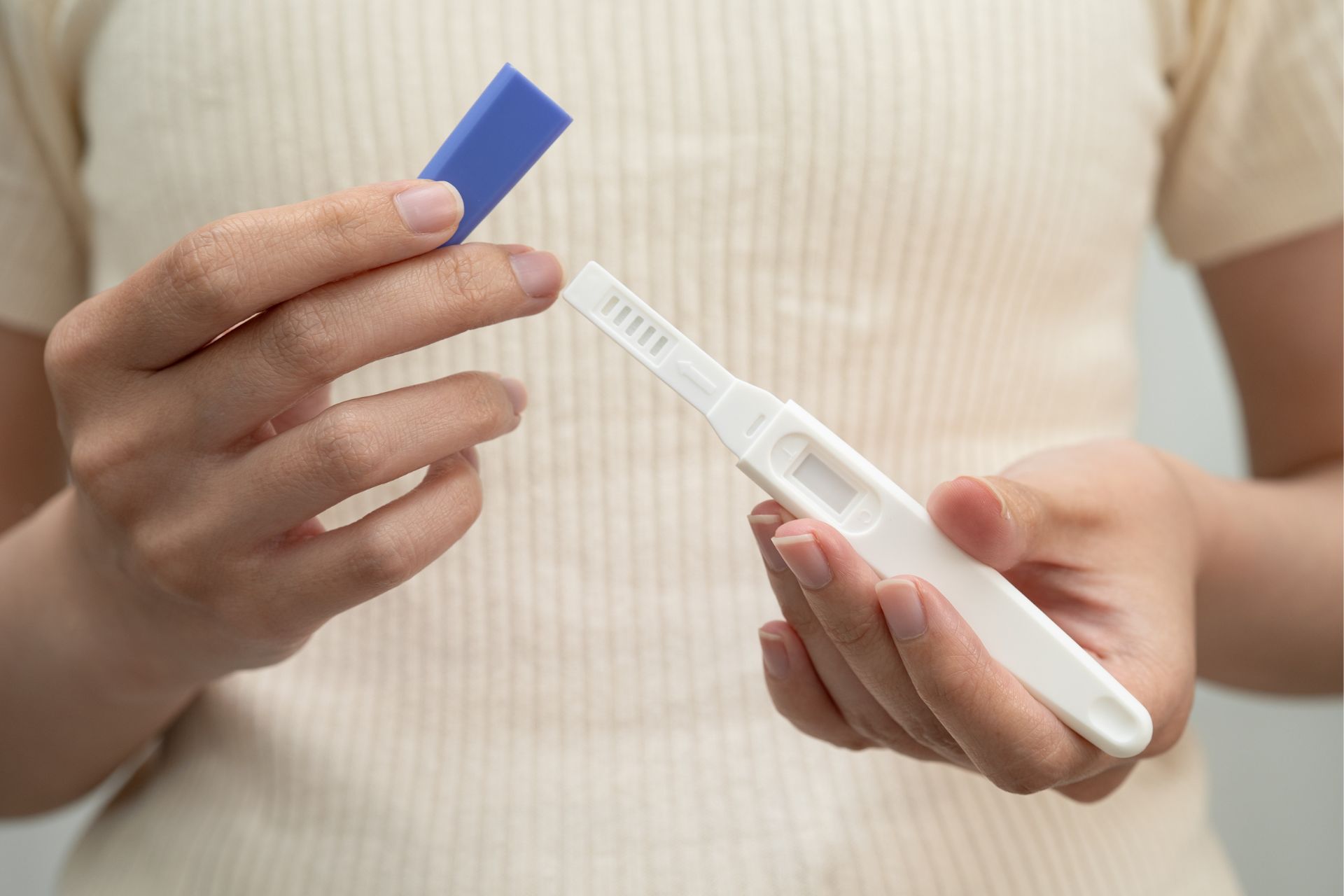
Pregnancy tests have optimal performance when used with first morning urine, because hCG concentration is higher. If this is not feasible, it can be done at any time of day, but it is recommended to limit fluid intake about two hours before the test, so that the urine is not diluted.
Read in more detail how do pregnancy tests work.
Do fluids/alcohol affect the test result?
Large fluid consumption dilutes hCG and can lead to a false negative result. Additionally, alcohol can affect the result, so it's good to avoid it before taking the test.
Can a pregnancy test give a false positive or negative result?
If the test is used correctly, it is rare to have an incorrect result. However, there are situations that can affect interpretation:
- Too early testing: If the test is done before hCG rises enough, it may be negative, while there is a pregnancy. That's why it's recommended to repeat it after 2 days and definitely on the first day of a missed period.
- Biochemical pregnancy: The pregnancy is interrupted very early, so hCG drops and the test may return to negative, even though there was a pregnancy.
- Fertility drugs: Taking preparations containing hCG can give a false positive result.
- Pathological conditions: Certain tumors and other pathological conditions, such as hemolysis or lipidemia, can make the test positive, without pregnancy.
- Alcohol and fluid consumption: These are factors that may affect test accuracy.
For more details about test sensitivity and reliability see the article: "Pregnancy test and sensitivity".
Can a false positive test appear after a miscarriage or delivery?
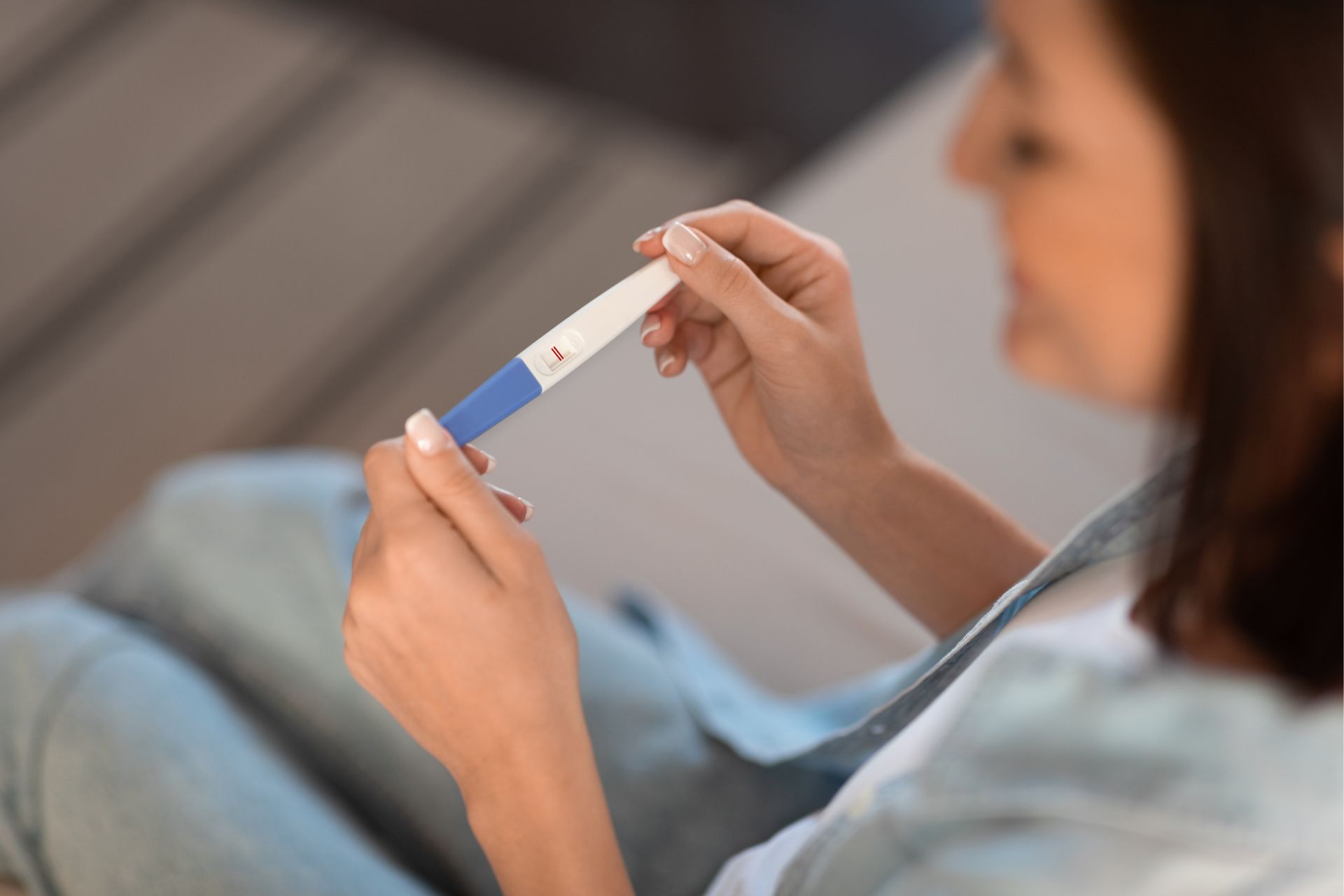
Recent pregnancy (delivery, miscarriage or termination of pregnancy) can leave residual hCG, causing a false positive result.
More specifically, after delivery, hCG levels may take 3-4 weeks (sometimes up to 6 weeks) to return to undetectable levels.
On the other hand, after a miscarriage or termination of pregnancy the drop in hCG is faster, usually within 1-2 weeks, but in some cases it may take up to 4 weeks.
The rate at which beta-hCG reaches zero depends on:
- how advanced the pregnancy was,
- the initial hCG level,
- each body's metabolism.
So it's good if you think you're pregnant after a recent delivery or miscarriage, to wait 4 weeks before taking the test.
See here all cases where the test is false positive.
What do I do if I have an irregular cycle? When should I test?
If you have done an ovulation test, you know when it happened, so the expected period is 14 days later. Then (or 1-2 days before), you can take a pregnancy test.
If you don't know when your ovulation occurred, you can start approximately based on the average of previous cycles. In this case, the most suitable pregnancy test is the strip test.
Pregnancy strip tests are available at very low prices and detect the beta-hCG hormone from a low level. So you can start and gradually see the second line darken, if the test is positive.
Which drugs can alter the pregnancy test result?
Taking preparations containing hCG (fertility drugs) can give a false positive result.
What should I do if the test is negative but my period doesn't come?
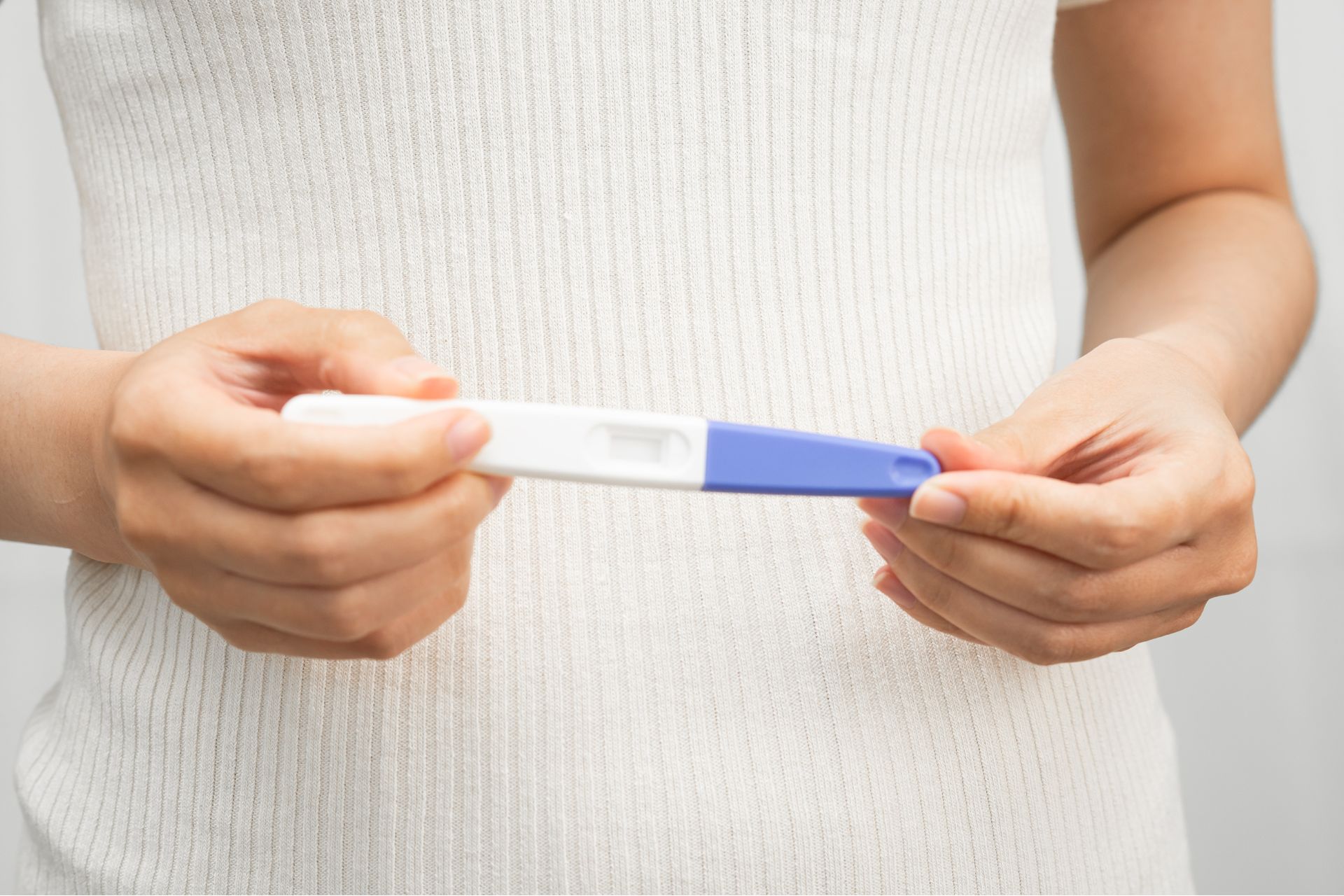
A delay without pregnancy can be due to incorrect cycle calculation, false negative test (e.g. done too early or with diluted urine) or pathological pregnancy. It's good to repeat the test after 2-3 days and consult a doctor if the period doesn't come.
Read what to do if you are 7 days late and the test is negative.
How reliable is the blood β-hCG test?
The blood test presents maximum reliability and sensitivity, as it can detect lower levels of beta-hCG compared to the urine test.
However, it requires blood sampling at a specialized laboratory and is therefore much more expensive than urine tests.
What β-hCG values in blood are considered positive/negative?
Values below 5 mIU/ml are considered negative for pregnancy indication, 5-25 mIU/ml require re-examination and above 25 mIU/ml give over 97% probability of pregnancy.
Read more about pregnancy test sensitivity and beta-hCG levels.
Is there a possibility of false positive test due to ovarian cyst?
Ovarian cyst is included in the pathological conditions that may falsely make the pregnancy test positive, although it is a rare phenomenon.
See here all cases where the test is false positive.
How long does hCG hormone last in the body after IVF?

In in vitro fertilization, hCG injections are given to trigger ovulation or support implantation. This administered hCG can cause a false positive pregnancy test, because it is detected by tests just like pregnancy beta-hCG.
It usually takes 10-14 days to be completely eliminated from the body after the last injection.
For this reason, doctors recommend that the pregnancy test after IVF be done at least 12-14 days after the hCG injection, to avoid the possibility of a false positive result due to the drug.
My test says I'm pregnant. What should I do?
If you have a positive pregnancy test, it's good to repeat it the next day or the day after, so you can see that it remains positive and the line darkens (if it's a strip or midstream test).
Then, contact your doctor immediately, who will guide you through the next steps which include blood tests and ultrasound examination.
My test says I'm not pregnant. What should I do?
If you have a missed period, but the test is negative, it's good to make sure you used the test correctly. Also, because there's a chance your cycle is irregular and ovulation occurred later, you can wait 2-3 days and take the test again.
However, the delay may have another cause, such as stress, hormonal disorders, perimenopause, weight changes, medication, polycystic ovaries, thyroid disorders or other diseases. Therefore, if the delay persists and the test continues to be negative, you should consult your doctor as soon as possible.
Read more in the article: "I have 2 negative tests and missed period: What does it mean and what should I do?".
0 comment(s)